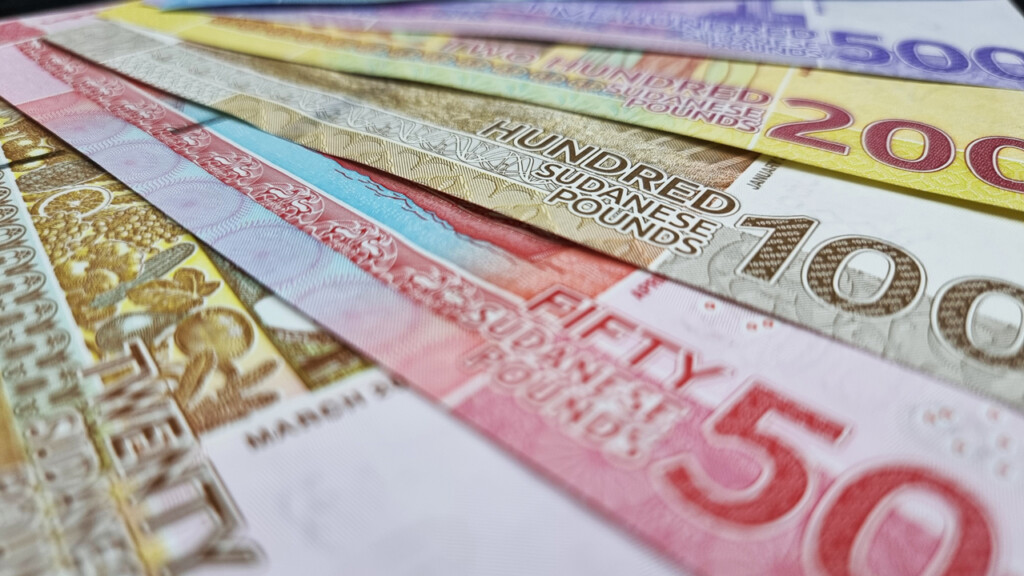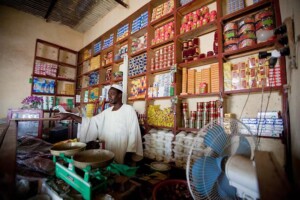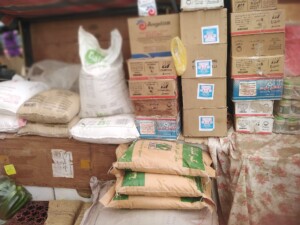Economist expects dismissals at Sudanese banks and warns of stagflation

Sudanese Pounds (File Photo: AMB / RD)
KHARTOUM – March 31, 2023
Former banker and economic analyst Hafiz Ismail warned about the disastrous impacts of stagflation and the weak financial position of Sudanese banks. He criticised the policies of the Minister of Finance and expects that banks will resort to the dismissal of employees in the future.
In an interview with Radio Dabanga yesterday, Ismail said that Sudanese banks are resorting to offering ‘an optional pension’ to their staff, accompanied by other measures in the hope to reduce the workforce and bring down operating costs.
Ismail explained to Radio Dabanga that the Sudanese banks are suffering from a cumulative crisis due to two factors. The first is the financially weak budgetary positions of banks because debts have grown larger than the financial capital and reserves of these banks due to corruption.
The second factor is related to employment, as new technologies and digitalisation have reduced the need for employees and diminished their role in financial operations. At the same time, banks are in need of more skilled workers capable of keeping up with the pace of technological progress.
The decision to make pensions ‘optional’ is one of several incentives “to get rid of the armies of workers in order to reduce the operating costs,” Ismail explains. He expected banks to resort to dismissal of employees to address the problem of the weak budget.
Four weeks ago, Radio Dabanga reported that economists were sounding the alarm as Sudan’s trade deficit hit $6.7 billion.
Stagflation and agriculture
Ismail criticised the recent statements of Sudan’s Minister of Finance who promised to improve the economic situation and a decline in commodity prices.
Hasan Bashir, a professor of economics at El Nilein University, explained to Radio Dabanga two months ago that “low inflation rates do not mean an improvement in economic performance but are a reflection of stagflation, resulting from declining consumption, the cessation economic activities, lack of production, lack of job opportunities, and the flight of investors abroad”.
“Sudan is in a bad economic situation known as stagflation,” Ismail echoed and explained that stable exchange rates are not an indicator of an improved economy but of a lack of demand, which is an indicator of stagflation.
“It is better for the economy to have movements in trade that lead to a reasonable increase in inflation than having a recession that leads to a contraction in the economy.”
Agricultural crisis
The continuing stagflation “has led to lower prices of agricultural crops,” Ismail said.
“The crops no longer cover the cost of their production, which will lead to farmers being jailed for their inability to pay their debts,” the financial analyst explained. He said he expects that those who cultivated their farms without financing will declare bankruptcy.
Ismail attributes the problems to the economic policies pursued by the Minister of Finance, which include increased levies and taxes.
He called on the government to pump money into the agricultural economy to buy crops from farmers at reasonable prices.
About 65 per cent of Sudan’s population now lives in poverty according to recent estimates.
At the end of last year, the United Nations reported that a third of the Sudanese population will need humanitarian assistance in 2023, estimated at $2 billion.











 and then
and then